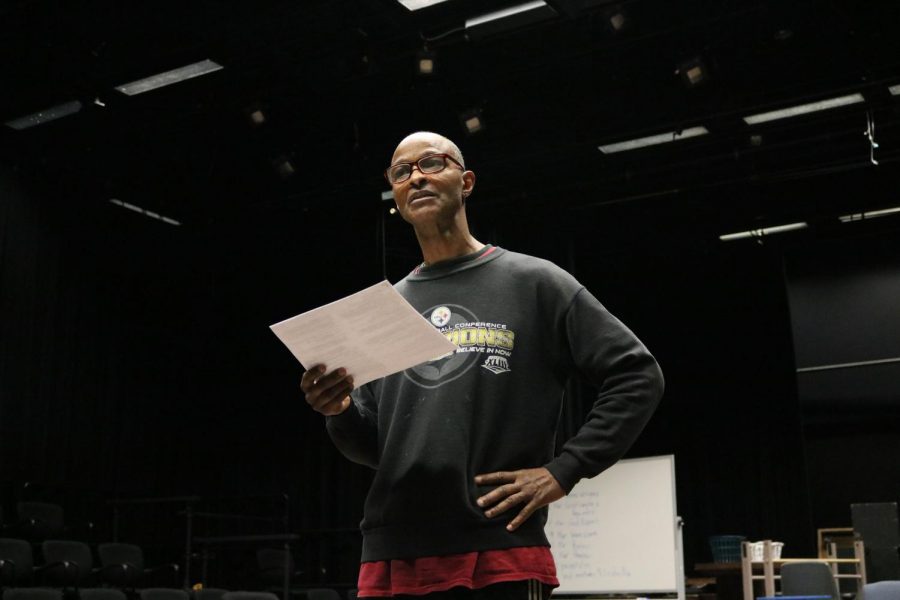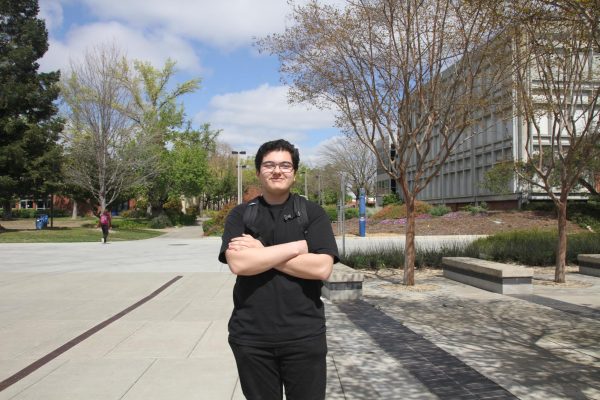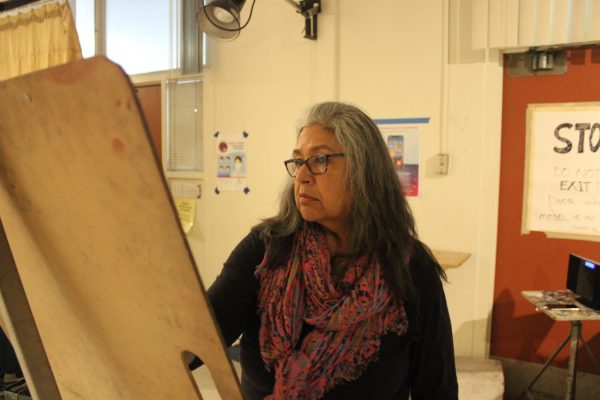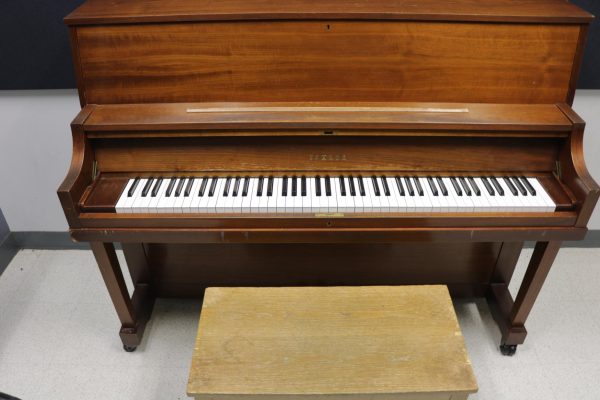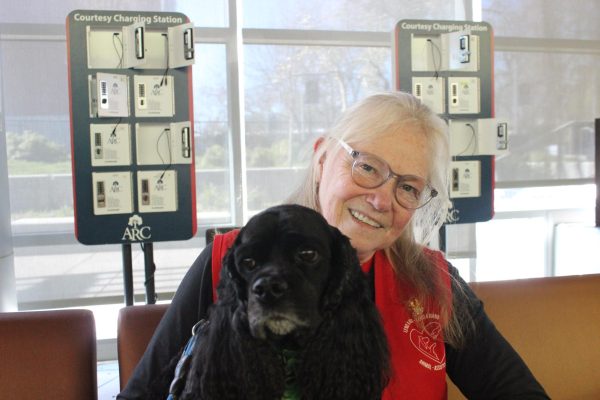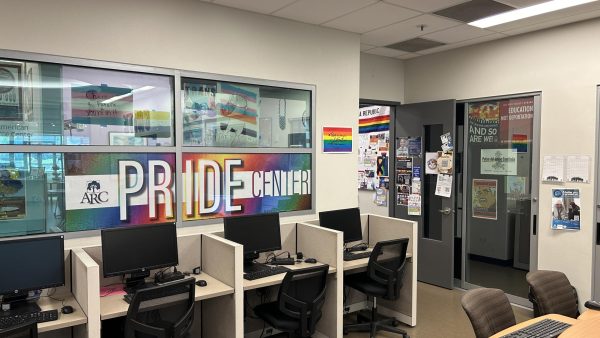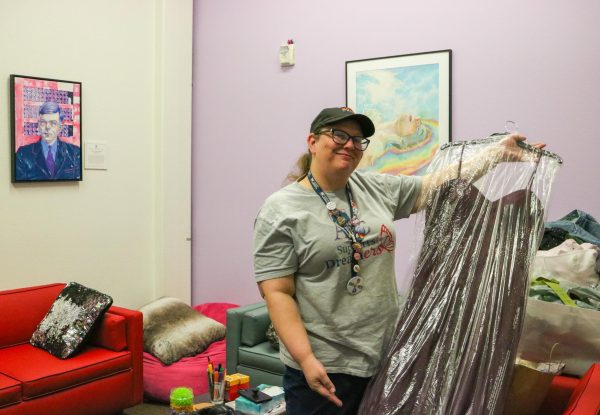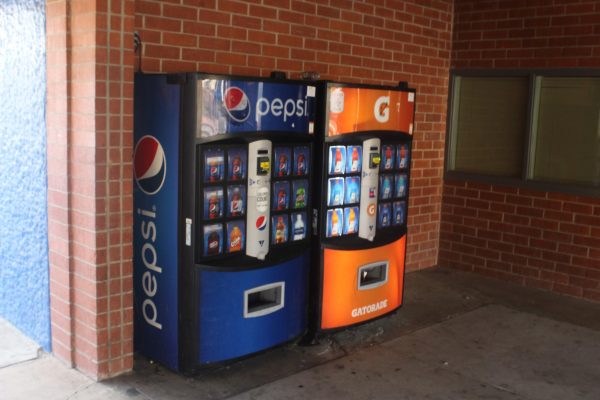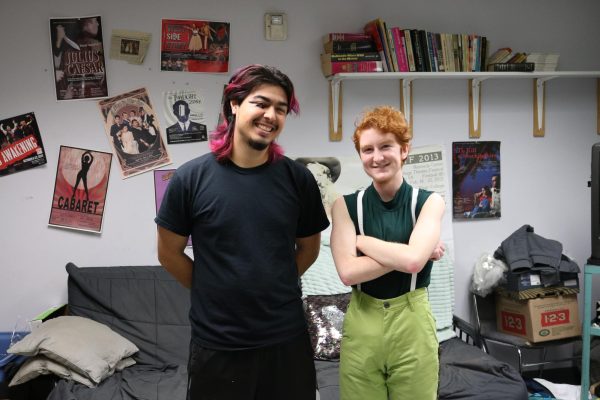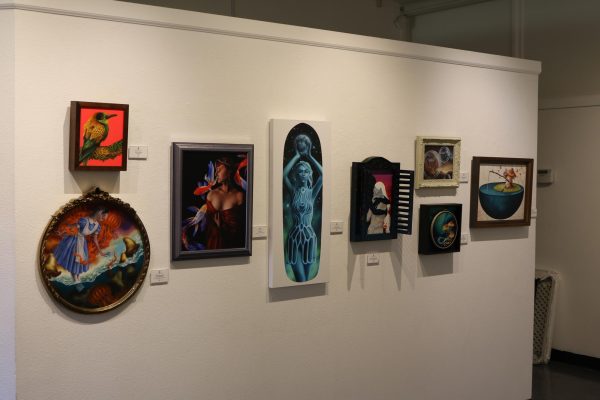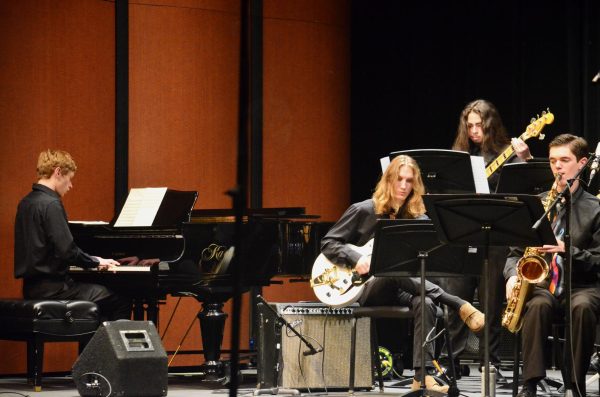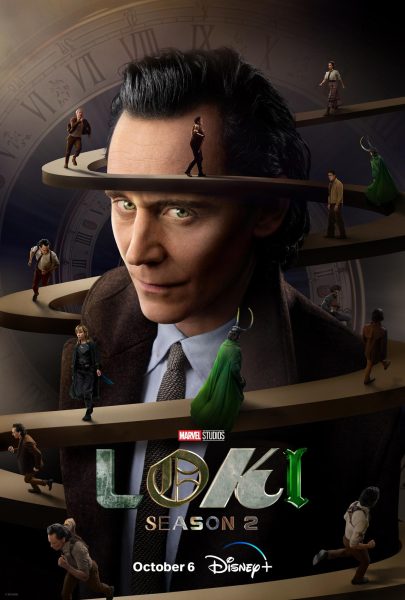Transitioning interactive arts classes online has come with challenges
Fine Arts professors get creative with remote learning
Both professors and students in the music, art and theater arts departments continue to struggle with transitioning their interactive classes online after the coronavirus-induced shut-down of American River College on March 13.
The most challenging classes prove to be the ones where the students used campus-provided tools, whether that be printers, sewing machines or in some cases, their professor’s ears.
While many traditional lecture classes have moved online with the use of Zoom, instrumental jazz ensembles, taught by music department chair Dyne Eifertsen, are using a different application called SmartMusic.
SmartMusic lets the student play along with professional musicians and the application itself can evaluate the student’s performance.
“This has been pretty fun for them and creates a virtual ensemble atmosphere,” Eifertsen said. “They are also submitting weekly practice logs, posting to discussion boards, and attending Zoom meetings.”
Eifertsen also teaches a history of rock and roll class. However, this class he taught sections of both online and face-to-face prior to the shutdown, so his transition to virtual learning was simpler.
He says the hardest part of the transition isn’t figuring out how to make music courses accessible over the internet.
“We miss our students, [and] we miss the face to face contact and the interactive part of humanity that cannot be replaced online,” Eifertsen said. “I miss students hanging outside of my office and talking day-to-day stuff.”
Eifertsen says the music department allows students to be themselves.
“The music department is a safe haven for students where they can be themselves and express their artistic side freely,” he said. “I cherish the people I work with and we are doing our best to keep close within the digital world.”
Art professor and Kaneko Art Gallery director Patricia Wood also managed to get by moving her drawing, printmaking, and art gallery operations online.
She says the art gallery operations class was easiest to move online, and while running a real gallery is much more exciting, a lot of the work for it, such inventory lists and reviews, is already done on a computer.
Wood also says that printmaking remains the most challenging. Students do not have access to printing presses at home, so they must hand print the plates they turn in. They buy their own ink for this and do not have access to a large variety of colors.
“[It] takes a lot of pressure and muscle as you have to try to apply the same pressure as a print press,” Wood said. “It’s not easy, but it can be done.”
Gail Russell, head of the costume department and theater arts professor, also says her students miss out on experience with the online transition.
Russell teaches costume construction and she says while PowerPoints and lecture videos are the basics that she can provide, she and her students cannot continue sewing.
“We were not able to continue with the actual sewing part of the course,” Russell said. “We cannot assume that all the students have the tools to even hand sew, let alone have sewing machines.”
Instead, the students of this course have taken virtual tours of fabric stores and Russell had her instructional assistants act as guest speakers talking about their costuming experience working backstage for both Sacramento Music Circus, and Sacramento Theater Company.
“I do believe that we are in this together, and like [theater], this is a co-operative effort that needs everyone to be an active team player to take hardship and disappointment and transform it into something positive and beneficial for all,” Russell said.
Transitioning online has proved difficult for students as well.
Before the transition, theater arts major Braeden Harris took Theory and Techniques of Acting II in the theater arts department on Tuesdays and Thursdays from noon to 1:20 p.m.
The class still meets during this time via ConferZoom, but Harris is not in attendance.
Harris lives in Vacaville and works at a local boba tea shop there. His hours would have been significantly cut if he hadn’t opened up his Tuesday and Thursday availability.
Instead of dropping the class, he worked it out with his professor to where he no longer performs his monologues in a Zoom meeting, but sends them in individually.
“It takes the pressure off performing directly, which can be a plus,” Harris said. “But I know it’s better to perform it in front of people, [because] that’s the whole point. From the standpoint of it being an assignment, it’s more convenient.”

